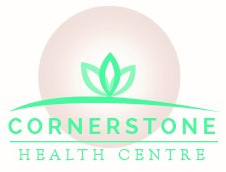Benefits of Continued Georgetown Chiropractic Care for Back Pain
“Doc, must I see you for a long time?”
“Not necessarily, but you may want to!”
Researchers are documenting the support for chiropractic care in the shorter and longer term also known as maintenance care. Advantages consist of pain relief and return of function in the short term and sustained pain relief, continued function, and boosted confidence in performing activities of daily living. Dr. Butwell trusts our Georgetown chiropractic patients to make the best decision for their condition as they know themselves and their bodies well.
CHIROPRACTIC RELIEF: TIME, VISITS AND WORSE PAIN, FUNCTION RETURN
A RAND Human Subjects Protection Committee-approved study of chronic back pain (1362) and chronic neck pain (1214) patients evaluated how quickly they improved with chiropractic care and how much functional improvement they experienced. These patients were found to suffer with mild pain for the most part. Back and neck pain reduced, and function improved gradually over three months of chiropractic care. When frequency of chiropractic visits was mixed in the analysis, those who experienced the worst pain had more visits. Only when chronic low back pain patients made visits more than one time a week was the impact beneficial and made a difference in regards to greater improvement. (1) Studies like this can help patients with their expectations and payers with their treatment plan decision-making for coverage. Dr. Butwell is so glad to read about these published studies to share with our Georgetown back pain patients.
TREATMENT PLANNING FOR BACK PAIN RELIEF: Chiropractic Maintenance Care
Not all back pain patients are the same. Georgetown back pain has biological, social, and psychological influences]30] that should be taken into consideration as well. A collection of back pain patients’ response to chiropractic care alone versus multidisciplinary care found a relatively small difference in outcome which seems logical since inserting ancillary care boosts the outcomes. (2) Same with continued chiropractic care. Patients who followed maintenance care recommendations noted fewer pain days and fewer activity-limited days. (3) Back pain patients who observed recommendations for maintenance care valued its being patient-centered. Cost, low availability, and fear of treatment were factors they thought prevented them from following recommended maintenance care. (4) One patient with a 13-year history of chiropractic once-monthly maintenance care including cervical spine long-y distraction for cervical radiculopathy and related retrolisthesis (backward slipping of one spinal vertebral bone on its spinal neighbors) kept the patient asymptomatic, kept the spine functioning as best as possible, and brought about a gradual decrease in the cervical spine retrolisthesis. Older neck pain patients who got long-term chiropractic care and exercise for neck pain experienced greater improvement in pain, function, balance, and self-efficacy (confidence in doing daily activities and such). Chiropractic care was considered to positively impact pain and manage symptoms while exercise bolstered self-efficacy and confidence in being able to stay active and mobile and in being able to self-handle their condition. (6) Dr. Butwell carefully creates a treatment plan for each individual patient for best possible outcomes for each.
CONTACT Dr. Butwell
Listen to the PODCAST with Dr. Robert Borzone on the Back Doctors Podcast with Dr. Michael Johnson as he shares the effectiveness of continued chiropractic care with the Cox® Technic System of Spinal Pain Management for his patient with a disc herniation.
Schedule your next Georgetown chiropractic appointment with Dr. Butwell. Our back pain and neck pain patients don’t have to see us, but many choose to because they feel good and want to stay that way.

